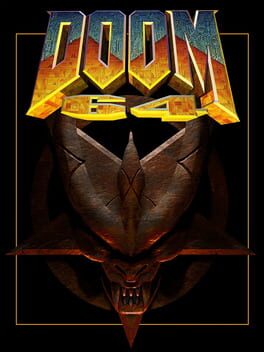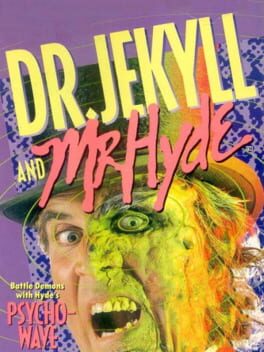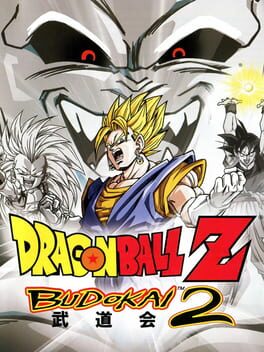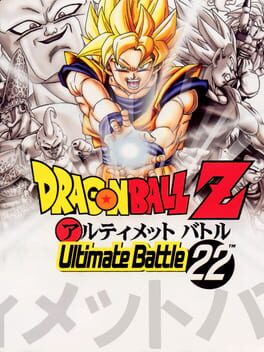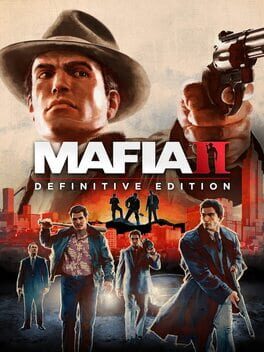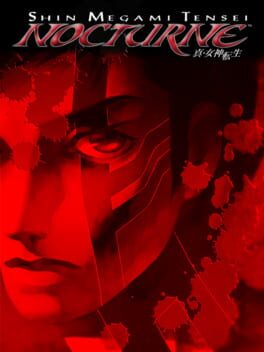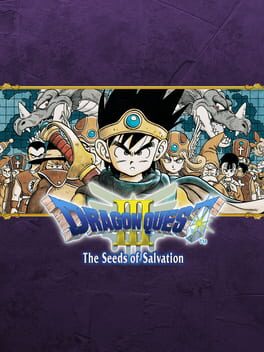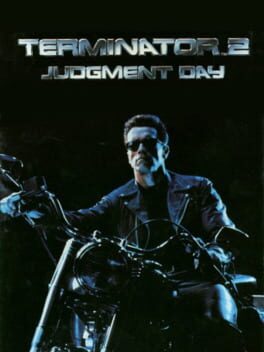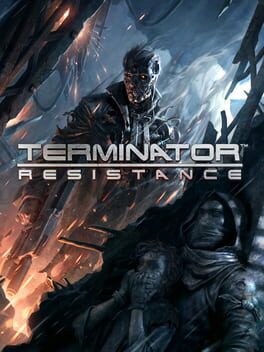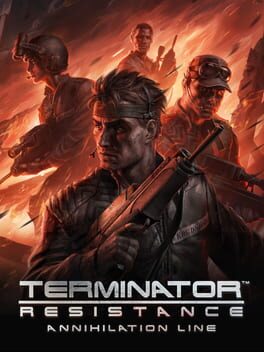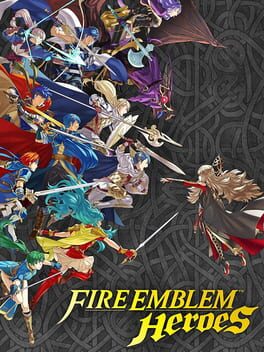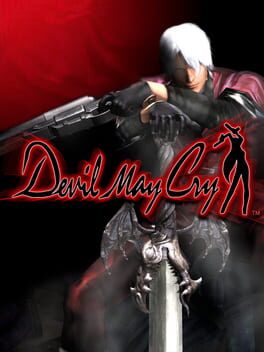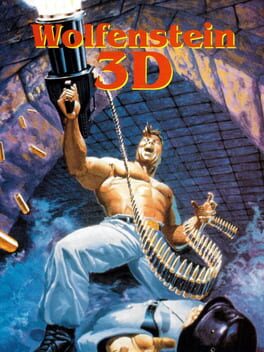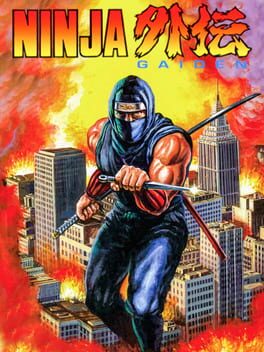behelitbebop
1993
1997
This review contains spoilers
While I enjoy the first two Dragon Quest games for different reasons and for what each of them was trying to set out to do, the third game is really where the series starts to hit its stride and find its footing. It’s hardly a spoiler at this point, but seeing as the third game is a prequel telling the story of how the legendary hero Erdrick/Loto earned his stripes (hence the subtitle in the original Japanese: “Soshite densetsu e…” translated to “And into the legend…”), it’s only fitting that this game expanded, iterated on, and refined so many aspects of the first two games while also adding so many new features that it feels like a legendary adventure, more so than even its predecessors. I could go on about so many different aspects of the game’s design, such as the class and multiclass system, or how the game is a simple yet brilliant rendition of the Hero’s Journey, but the primary standout aspects of Dragon Quest III to me are its worldbuilding and its theme of family.
Dragon Quest games have always had rich worlds with charming characters for you to interact with (more or less depending on the game). While I and II were foundational and had good worldbuilding for their time, III really took things to the next level. If you look at the world map, it is made to resemble our own planet Earth, with similar continents. The only real outlier is the starting continent containing Aliahan, where Erdrick hails from. Following that premise, the towns on these continents resemble the different peoples and cultures of our own Earth, to some extent or another, giving the towns a rich and charming personality that other jrpgs of the time lacked. The player will travel from town to town and solve small problems in each area in little vignettes that flesh out those small encounters and tie in to the greater whole. Dragon Quest II tried this previously but in my humble opinion, III pulls this off to greater success. Through this structure, the game emphasizes the hero as a worldly person who connects people through his/her heroism, making this game being the origin story of Erdrick all the more fitting. Honestly, my only complaint is somewhat minor in that it is a retroactive one. I played XI to completion prior to finishing III, so unfortunately my opinion was somewhat colored by that game, which happened to go for a similarly varied and diverse world. Besides differences in architecture, one feature XI had was accented dialogue that would vary based on region. Architectural differences based on the town and region in III did not seem as stark as in XI, but I would probably chalk that up to hardware. I really think the devs did as best they could to diversify the world, and it shows. The dialogue in III had somewhat of a variance but not much in the way of accents, which was kind of disappointing. I was playing the fan-translated Super Famicom remake though, and if I remember correctly the mobile and Switch versions have different dialogue with similar accent variety as in XI. Again, a minor thought I had, but one I thought worth mentioning. For its time, III’s worldbuilding was ambitious, and it is definitely one of its standout aspects.
I have often discussed the Dragon Quest games at length with my best friend and we have come to the conclusion that one of the central themes present in most if not all of the mainline Dragon Quest games is family. This theme has been present ever since the original Dragon Quest and is naturally a main element of the Erdrick Trilogy specifically. In I, you play as the descendant of the hero Erdrick who must fulfill the destiny of his bloodline by vanquishing the Dragonlord, and in II you play as the descendants of the hero of I (and by extension, Erdrick) and must fulfill the destiny of your bloodline once more. II expanded on this idea with the Prince of Cannock and Princess of Moonbrooke as party members, emphasizing the relationship and shared destiny of the three cousins. III expands on this theme in the best way possible at this juncture: by personalizing it. You play as the soon to be legendary hero Erdrick, but the theme of family is not emphasized in your bloodline or your descendants, but in both the family by bond in the party you create at Ruida's Tavern and by blood in the personal relationship between you and your father, Ortega. It is often a wish of a parent to see their child succeed in life where they have failed, or otherwise just make it further than they did, and this is conveyed beautifully and touchingly in III. Ortega leaves Aliahan to defeat Baramos before the hero is even born, and throughout the adventure Erdrick is following their father’s footsteps on a journey to unite and save the world, and ultimately succeed where he failed.
My father passed away in August of 2021, after a long bout with various crippling health conditions. Despite having a complicated relationship with him, I loved him, and it was a difficult loss to deal with. Yet, through all the sorrow and pain, Dragon Quest III managed to be one of the most cathartic experiences I have had in dealing with the loss of my father, and it is because of this theme of family. Throughout the various towns, the player will encounter townsfolk who speak of Ortega’s deeds or even of meeting him before. One town is filled with people who adore Ortega, and will comment frequently on how the hero looks just like him. This reminded me of how everyone would always say I looked like my father more than my mother. It's a common and simple fact of life but nevertheless, it managed to elicit tears. Later on, you catch up with your father, but he dies before your eyes while battling the King Hydra, failing in his quest. Defeating the following bosses and then the end boss Zoma felt cathartic, not just in the sense that in-universe Erdrick was defeating the being who killed Ortega, but almost as if I was avenging the death of my own father, vowing with that action to forge on my path in life and learn the lessons he taught me. It was unexpected but incredibly moving.
Dragon Quest III is a simple, straightforward JRPG. I would almost call it the quintessential JRPG, but that title probably goes to Chrono Trigger. While innovating for its series and for JRPGs in general, its gameplay, story, and characters may be considered barebones and trite by some. Yet, this game’s charm, emotion, and vibrant world cement it as a forever masterpiece of the genre in my eyes, and a must play for any fans of JRPGs.
Dragon Quest games have always had rich worlds with charming characters for you to interact with (more or less depending on the game). While I and II were foundational and had good worldbuilding for their time, III really took things to the next level. If you look at the world map, it is made to resemble our own planet Earth, with similar continents. The only real outlier is the starting continent containing Aliahan, where Erdrick hails from. Following that premise, the towns on these continents resemble the different peoples and cultures of our own Earth, to some extent or another, giving the towns a rich and charming personality that other jrpgs of the time lacked. The player will travel from town to town and solve small problems in each area in little vignettes that flesh out those small encounters and tie in to the greater whole. Dragon Quest II tried this previously but in my humble opinion, III pulls this off to greater success. Through this structure, the game emphasizes the hero as a worldly person who connects people through his/her heroism, making this game being the origin story of Erdrick all the more fitting. Honestly, my only complaint is somewhat minor in that it is a retroactive one. I played XI to completion prior to finishing III, so unfortunately my opinion was somewhat colored by that game, which happened to go for a similarly varied and diverse world. Besides differences in architecture, one feature XI had was accented dialogue that would vary based on region. Architectural differences based on the town and region in III did not seem as stark as in XI, but I would probably chalk that up to hardware. I really think the devs did as best they could to diversify the world, and it shows. The dialogue in III had somewhat of a variance but not much in the way of accents, which was kind of disappointing. I was playing the fan-translated Super Famicom remake though, and if I remember correctly the mobile and Switch versions have different dialogue with similar accent variety as in XI. Again, a minor thought I had, but one I thought worth mentioning. For its time, III’s worldbuilding was ambitious, and it is definitely one of its standout aspects.
I have often discussed the Dragon Quest games at length with my best friend and we have come to the conclusion that one of the central themes present in most if not all of the mainline Dragon Quest games is family. This theme has been present ever since the original Dragon Quest and is naturally a main element of the Erdrick Trilogy specifically. In I, you play as the descendant of the hero Erdrick who must fulfill the destiny of his bloodline by vanquishing the Dragonlord, and in II you play as the descendants of the hero of I (and by extension, Erdrick) and must fulfill the destiny of your bloodline once more. II expanded on this idea with the Prince of Cannock and Princess of Moonbrooke as party members, emphasizing the relationship and shared destiny of the three cousins. III expands on this theme in the best way possible at this juncture: by personalizing it. You play as the soon to be legendary hero Erdrick, but the theme of family is not emphasized in your bloodline or your descendants, but in both the family by bond in the party you create at Ruida's Tavern and by blood in the personal relationship between you and your father, Ortega. It is often a wish of a parent to see their child succeed in life where they have failed, or otherwise just make it further than they did, and this is conveyed beautifully and touchingly in III. Ortega leaves Aliahan to defeat Baramos before the hero is even born, and throughout the adventure Erdrick is following their father’s footsteps on a journey to unite and save the world, and ultimately succeed where he failed.
My father passed away in August of 2021, after a long bout with various crippling health conditions. Despite having a complicated relationship with him, I loved him, and it was a difficult loss to deal with. Yet, through all the sorrow and pain, Dragon Quest III managed to be one of the most cathartic experiences I have had in dealing with the loss of my father, and it is because of this theme of family. Throughout the various towns, the player will encounter townsfolk who speak of Ortega’s deeds or even of meeting him before. One town is filled with people who adore Ortega, and will comment frequently on how the hero looks just like him. This reminded me of how everyone would always say I looked like my father more than my mother. It's a common and simple fact of life but nevertheless, it managed to elicit tears. Later on, you catch up with your father, but he dies before your eyes while battling the King Hydra, failing in his quest. Defeating the following bosses and then the end boss Zoma felt cathartic, not just in the sense that in-universe Erdrick was defeating the being who killed Ortega, but almost as if I was avenging the death of my own father, vowing with that action to forge on my path in life and learn the lessons he taught me. It was unexpected but incredibly moving.
Dragon Quest III is a simple, straightforward JRPG. I would almost call it the quintessential JRPG, but that title probably goes to Chrono Trigger. While innovating for its series and for JRPGs in general, its gameplay, story, and characters may be considered barebones and trite by some. Yet, this game’s charm, emotion, and vibrant world cement it as a forever masterpiece of the genre in my eyes, and a must play for any fans of JRPGs.
What frustrates me the most about T2 for NES is how much of a vast improvement it is over the first NES Terminator game. The graphics definitely fit the tone of the film more and the character portraits are awesome. The music is also in the upper tier of NES soundtracks for me, really sets the mood nicely. This is all ultimately undermined by the gameplay which, while not as atrocious as the first game, leaves much to be desired. Combat can get monotonous which is frustrating for a game based on an action flick, and some sequences are way too difficult than they should be, especially for a game that gives you 4 lives and no(?) continues (I think at some point I managed to get a continue of some sort but that's it). I ended up finishing the game using save states but unlike the original I would play this again and try to beat it without save states. T2 is one of my all time favorite films so it sucks that this game had so much potential but ended up being just shy of decent.
I think its pretty safe to say that this is the best Terminator game, and that's simultaneously a disheartening and hopeful sentiment. This isn't a fantastic FPS by any stretch, but its fun enough and gets the job done. The gameplay is satisfying enough with guns that feel nice and enough enemy variety and scaling to make things interesting. Its greatest achievement is by far its atmosphere. Accompanied by a musical score that captures Brad Fiedel's style so well, this game really captures the "vibe" of the future flashbacks of the first two Terminator films perfectly. The final battle where you push the resistance forces towards Skynet with the main theme playing was nothing short of magical and uplifting. The game is not without its drawbacks, however. The story is serviceable at best but the characters are quite bland and unfortunately quite robotic in their mannerisms and voice, even for a videogame. The voice acting is good at best, but the real issue was the mixing. Seemingly at random, the volume of the voices would decrease sharply to little more than a whisper and I could barely hear the characters. There are also two sex scenes that are incredibly cringey. So, with a serviceable story and bland characters, really all the game has to go on is its ok gameplay and its atmosphere. When that atmosphere shines, though, it really shines. With a little more development, this game could have gone from a good game to a fantastic one, even. Despite this, if you are a Terminator fan, you owe it to yourself to give this game a shot.
Essentially the distillation of the best elements of Terminator Resistance into a small package. Character models are still kinda stiff even for a game but the characters themselves are a lot more interesting, even besides having an already established character like Kyle Reese. Seeing Rivers have more of a motive and reason to fight that is deeply personal to him made me like him more here and I wish there was more of that in the base game. If the whole base game were even just as good as this I would be extremely satisfied, and this expansion just further fueled my hope for a god-tier Terminator game.
2017
Definitely one of the more enjoyable gacha games but in the end, its still a gacha. I never finished any story mode for it or whatever and honestly, I don't really plan to. It always annoyed me how, at least when I played it, there was so much of an emphasis on the newer games from Awakening onward, and the extent of "classic" stuff was Path of Radiance, FE7, and Marth I guess. As someone who had started getting into the older games in the series around that time, this definitely upset me. This could definitely have changed since then but at this point I don't see the reason to play this on mobile and possibly get suckered into the gacha lifestyle when I could just download retroarch and emulate Mystery of the Emblem or Binding Blade lol.
2001
This is my third playthrough and my third time trying to get into the Devil May Cry series. The reason it has been so tough for me to get into this series is that I would play through the first game and it would never really impress me all that much, and by the time I would finish I would lose all of my steam to continue forward. I will say that, while I think this game is far from a masterpiece, I definitely enjoyed it a lot more on my third go-around, and I think this is largely due to the game not being great at teaching the player about a lot of its systems. It took me two playthroughs to understand more nuances of the combat, and a third to fully appreciate it. I also kind of wish there were more boss variety, as you pretty much fight the same four bosses three times each and it gets pretty old. The fixed camera angles provided some interesting shots at some points but overall proved to be a hinderance more often than not when changing angles, given that Dante does not operate with tank controls. Devil May Cry excels in its soundtrack and art direction above all, creating wonderfully gothic and foreboding atmospheres to explore. I especially love the castle theme, which samples from the same song (To Burble and Pine by David Torn) as Resident Evil 4's "Serenity" (yet another thing tying this game to RE4). I am only hoping that later titles will take the foundation that this game laid out and make something truly amazing out of it.
1992
Its a groundwork-laying classic. Killing Nazis is always fun, especially with the Death Cam. Id had not yet hit their stride with their level design until DOOM imo, but there is still some great fun to be had in these labyrinthine levels. The aesthetic of the levels fits their respective settings, although I find the areas much more bland than the inventive art direction of the levels of the DOOM games, even in the DOS era. My main complaint comes with the level design of the three prequel episodes (4-6), which take the labyrinth ethos to the extreme, even having some levels hide REQUIRED keys behind the previously optional secrets. Other than that, this is definitely a must play for any FPS fan, especially if you are an old-school FPS fan. I'm grateful for its legacy, not only with regards to the multiple series that would iterate on its design, but also to the groundwork it would lay for its own series, which would go on to produce some of my favorite games of the genre.
Mein Leben!
Mein Leben!
1988
"Ryu, be always brave...."
Ninja Gaiden is one of the best games on the NES and one of the best games period, but is undeniably one of the tougher entries to grace the original NES. Much of the game's infamous reputation for difficulty is owed to the final act. While the game has a steady and fair difficulty curve in the first five acts, Act VI ramps things up to insane levels, featuring two or three of the most difficult jumps/sections in the entire game, way more enemies than usual, and a three-form final boss that will boot you back to 6-1 if you fail. Moreover, while the final boss will start you on the form you died on upon return, your health from the stage will not be refilled upon reaching him. In this sense, its easy to say that you might as well reset the game if you can't beat him in one run, but like the rest of the game, with enough determination and focus you can beat each of his forms even separately. This aspect was not the only tough part of Ninja Gaiden, but it is easily the most difficult part for me.
Despite this, I still adore this game. Anyone who knows me knows that I love difficult games. Dancing on that razor's edge between adrenaline-pumping intensity and full-on, manic, seeing-red rage is one of my favorite feelings and is up there with eating extremely spicy food as my anti-drug. The best part of this game is that it really dances on that edge for me: its definitely really tough but its just tough enough where you still want to keep going. It dares you to finish it, just one more continue, just one more play, focus enough and you will make it! Ninja Gaiden boasts the ultimate concession and the best part of the best difficult games: unlimited continues! This prevents the game from delving into that horrible-hard territory with the likes of Silver Surfer. Ninja Gaiden with its unlimited continues, I would argue, wants you to finish it.
If you have the patience to withstand its tests of your will, then you will find one of the best NES games of all time. Boasting amazing cutscenes with some of the greatest shots I have seen in an NES game (or any game for that matter, the arrival at Jaquio's castle and the sunset ending come to mind), some of the best music on the system, and a legitimately compelling story for the time, this game is incredibly rewarding for anyone with the patience and determination to hone their ninja skills.
Ninja Gaiden is one of the best games on the NES and one of the best games period, but is undeniably one of the tougher entries to grace the original NES. Much of the game's infamous reputation for difficulty is owed to the final act. While the game has a steady and fair difficulty curve in the first five acts, Act VI ramps things up to insane levels, featuring two or three of the most difficult jumps/sections in the entire game, way more enemies than usual, and a three-form final boss that will boot you back to 6-1 if you fail. Moreover, while the final boss will start you on the form you died on upon return, your health from the stage will not be refilled upon reaching him. In this sense, its easy to say that you might as well reset the game if you can't beat him in one run, but like the rest of the game, with enough determination and focus you can beat each of his forms even separately. This aspect was not the only tough part of Ninja Gaiden, but it is easily the most difficult part for me.
Despite this, I still adore this game. Anyone who knows me knows that I love difficult games. Dancing on that razor's edge between adrenaline-pumping intensity and full-on, manic, seeing-red rage is one of my favorite feelings and is up there with eating extremely spicy food as my anti-drug. The best part of this game is that it really dances on that edge for me: its definitely really tough but its just tough enough where you still want to keep going. It dares you to finish it, just one more continue, just one more play, focus enough and you will make it! Ninja Gaiden boasts the ultimate concession and the best part of the best difficult games: unlimited continues! This prevents the game from delving into that horrible-hard territory with the likes of Silver Surfer. Ninja Gaiden with its unlimited continues, I would argue, wants you to finish it.
If you have the patience to withstand its tests of your will, then you will find one of the best NES games of all time. Boasting amazing cutscenes with some of the greatest shots I have seen in an NES game (or any game for that matter, the arrival at Jaquio's castle and the sunset ending come to mind), some of the best music on the system, and a legitimately compelling story for the time, this game is incredibly rewarding for anyone with the patience and determination to hone their ninja skills.

